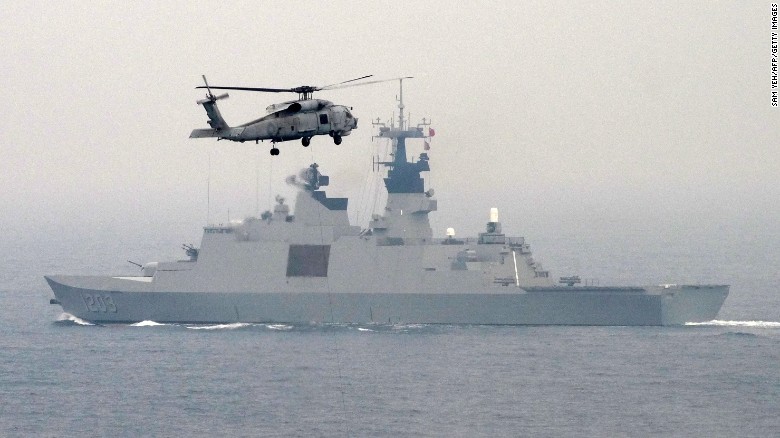Opinion: Trump risks reigniting Asia's most dangerous flashpoint
The conclusion here is that Trump's phone call with Tsai Ing-wen may not foretell major shifts in US relations with China and Taiwan.
It was more likely a reflection of Trump's personality and suggests that his presidency may be fraught with unintended diplomatic consequences triggered by his impulsive actions and words.
Why Trump's call could really rock the boat

China has a new obession and it's Trump's hair
New Cold War
This scenario does not bode well for US-China relations, which have seen rising tension in the recent years.
Indeed, lack of strategic mistrust between them is driving their relationship in the direction of a new Cold War.
In this context, the worst thing that may happen involve actions or words by either party that further amplify their mutual strategic mistrust.
Trump therefore needs to learn to become a more disciplined and diplomatic savvy president when it comes to the highly sensitive trilateral relations between Beijing, Taipei and Washington.
What does Donald Trump mean for Asia?
Dangerous flashpoint
The Taiwan Strait remains one of the most dangerous flashpoints in East Asia.
The return to power earlier this year by the Democratic Progressive Party, which traditionally favors independence for the island, has rekindled the prospect of instability across the Taiwan Strait.
Indeed, Tsai Ing-wen has skirted around the "1992 consensus" -- a tacit understanding reached between the Chinese Communist Party and Taiwan's then-ruling Kuomintang leadership that there was "one China," although either side was free to interpret what that meant.
The revisionist inclination of a DPP government poses threat to the stability of both Beijing-Taipei relations and Beijing Washington relations.
In this context, the Trump administration should avoid sending the wrong signals to Tsai's government as that would only embolden her to pursue more revisionist policies, which will in turn heighten the prospect of direct military conflict between China and the United States.
War in the western Pacific is the last thing that Beijing and Washington wants to see.
It is therefore in the interest of the United States to continue to restrain Taiwan's revisionist tendency while simultaneously deterring Beijing from unilaterally changing the status quo by force.
News Courtesy: www.cnn.com











